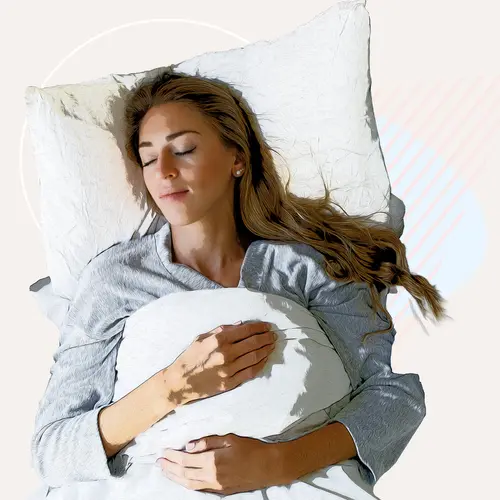There’s nothing like laying your head on a nice, fluffy pillow at the end of the day. But is the one you currently rest on what’s best for your body? It may not be if you have neck pain or wake up with neck stiffness. You may feel better and sleep better with a neck pillow. It’s sometimes called a cervical pillow because the upper part of your backbone (where your neck is) is called the cervical spine.
Research suggests that a pillow with good cervical support can help relieve neck pain and improve rest.
Types of Neck Pillows
The best pillow for neck pain depends on a lot of things -- including your sleep position, the cause of your neck pain, and what feels comfortable to you. Common types include:
- Neck rolls
- D-core, which has a D-shaped indentation in the middle for your head
- Standard contour pillows -- the wavy ones, with a lengthwise indentation for your head
- Horseshoe-shaped
Neck pillows come in a variety of materials, including down, memory foam, cotton, and synthetics that can wick away heat and sweat. The material you choose matters, but only if it makes the pillow feel comfortable to you. Experts say that, in general, comfort trumps all -- although material that keeps you cool may help you sleep more deeply.
How You Sleep Matters
The style of pillow you choose can improve your rest, but your sleep position also plays a role. If you lie on your side or back, congratulations: These are the best positions for neck pain, while lying on your stomach is the worst.
Whatever position you like best, be sure to choose a pillow that supports the natural shape of your cervical spine.
Back sleepers. You want your neck to have support, but you don’t want it propped up. Consider a contoured model designed for this position. You can also try using a roll-shaped one at your neck, with a soft, flat one to support your head.
Side sleepers. To keep your spine straight, use a pillow that provides the right neck support -- one that’s higher under your neck than under your head. It should be thick enough to hold your head up and also firm enough that your head doesn’t sink down into it. Latex pillows give you support but don’t overheat like memory foam can. A contoured pillow is designed for the job.
Stomach sleepers. Skip the neck pillow and use a thin one to keep your spine as straight as possible.
Sleeping on the go. If you plan to doze on a plane or on a road trip -- or even in a recliner -- try a horseshoe-shaped pillow. These support your neck so it doesn’t droop or jolt to one side.
What the Research Shows
If you rely on research to guide your choices, you won’t find much agreement on neck pillows. One review of five studies, published in 2006, concluded that there wasn’t enough evidence to recommend them for neck pain.
One study, published earlier, compared the effects of water-filled pillows, roll, and standard pillows on sleep quality. This research found that a water-filled version lessened morning pain and made for better rest than a roll pillow or standard model.
Yet another study found that a roll-shaped pillow noticeably improved chronic neck pain.
Keep in mind that nobody -- not the people in these studies, nor your friends and family -- can know what will work best for you. If your neck aches in the middle of the night or you wake up with stiffness and pain, it might help to try some kind of neck pillow.

